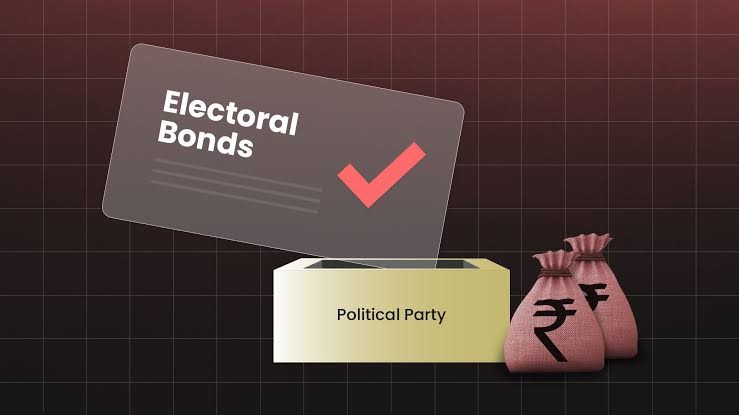
The Electoral bonds scheme

21.02.2024
The Electoral bonds scheme , Daily Current Affairs , RACE IAS : Best IAS Coaching in Lucknow
|
For Prelims:About the Electoral bonds scheme,What changes were made for the scheme?,What did the Supreme Court rule? |
Why in the news?
Recently the Supreme Court has declared the Electoral Bonds Scheme as unconstitutional.
Key Points
- These bonds constituted an important means of funding political parties since the year 2018.
- The court found that the scheme violated the citizens’ right to information about the sources of finances which are raised by political parties.
- The court also directed the full disclosure of all details of contributors, recipient parties and denominations.
About the Electoral bonds scheme:
- An electoral bond is in the nature of a promissory note which shall be a bearer banking instrument and it does not carry the name of the buyer or payee.
- Any citizen or company could buy these bonds in denominations of ₹1,000, ₹10,000, ₹1 lakh, ₹10 lakh, and ₹1 crore and can donate it to a political party.
- It can be encashed only through a bank account which is an authorized bank.
- The State Bank of India was the bank authorized to issue and encash these electoral bonds.
- According to the electoral bonds scheme, the proceeds from any bonds, which are not cashed within the 15 days of being issued, are to be deposited in the Prime Minister Relief Fund.
- It is also important to note that only political parties registered under Section 29A of the Representation of the People Act, 1951, and those that secured at least one percent of the votes in the last general election to the Lok Sabha Or state legislative assembly are eligible to receive electoral bonds.
- The stanches of bonds will be available for purchase for 10 days in the month of January, April, July, and October with an additional time-frame of 30 days in the year of General Elections for the Lok Sabha.
What changes were made for the scheme?
- Section 13A of the Income Tax Act earlier noted that political parties must maintain a record of contributions above ₹20,000.
- The Finance Act 2017 amended the above provision to make an exception for contributions through electoral bonds.
- As a result, parties were not even required to maintain any record of what they received through the bonds.
- Section 29C of the Representation of the People Act (RPA), 1951, earlier noted parties should prepare a report on contributions in excess of ₹20,000 from any person or company in a financial year.
- This was amended in 2017 to the effect that contributions through electoral bonds need not be included in the said report.
- Under Section 182(3) of the Companies Act, companies were required to disclose details of contributions to a political party which include the amount and the party’s name, in its profit-and-loss account.
- However, after the amendment, it was required only to reveal the total amount given to parties in a financial year.
- Previously there was a cap of 7.5% (of the three-year average net profit of a company which from 1985 till 2013 was 5%).
- After the electoral bonds scheme a company making a loss can also donate to political parties.
What did the Supreme Court rule?
- In past judgments, the apex court has held that voters have a right to information which is essential for them to exercise their freedom to vote.
- The court, therefore, held that information about funding to a political party is essential for a voter to express the freedom to vote in an effective and efficient manner.
- The Electoral Bond Scheme, to the extent that it infringes on this right to information by anonymising contributions through bonds, violates Article 19(1)(a), which is related to freedom of expression.
- As far as the purpose of curbing black money was concerned, the court applied a proportionality test which refers to whether the abridging of the voters’ right to know through donor anonymity was achieved through the least restrictive means.
- The court said alternatives such as funding through electronic transfer (for small contributions) and donations to an Electoral Trust (for larger amounts) were available.
- As the government was unable to establish that the scheme is the least restrictive means to balance the right of “informational privacy” to contributors and the right to information on political contributions, the amendments to IT Act and RPA were considered unconstitutional.
- On the changes to the Companies Act, the Court ruled that the deletion of the disclosure requirement on details of contributions violated the voter’s right to information.
Source:The Hindu